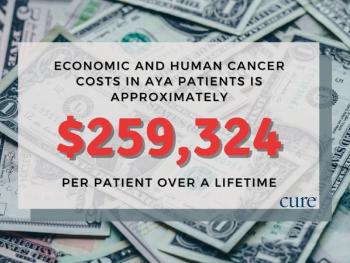
The costs related to a cancer diagnosis go beyond treatment, reflecting the altered participation in the workforce for adolescents and young adults.

Darlene Dobkowski, Managing Editor for CURE® magazine, has been with the team since October 2020 and has covered health care in other specialties before joining MJH Life Sciences. She graduated from Emerson College with a Master’s degree in print and multimedia journalism. In her free time, she enjoys buying stuff she doesn’t need from flea markets, taking her dog everywhere and scoffing at decaf.

The costs related to a cancer diagnosis go beyond treatment, reflecting the altered participation in the workforce for adolescents and young adults.

The FDA approval of Epkinly also includes a subset of patients with indolent lymphoma-related DLBCL and those with high-grade B-cell lymphoma after two or more systemic therapies.

Tagrisso plus chemotherapy improved progression-free survival in patients with EGFR-mutated, locally advanced or metastatic non-small cell lung cancer, according to high-level results from a phase 3 trial.

Patients with pancreatic cancer are treated with chemotherapy and surgery, depending on the stage, but more options are needed to treat a disease does not often respond to treatment.
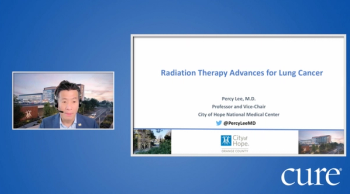
Watch Dr. Percy Lee, from City of Hope, discuss radiation advances during the CURE® Educated Patient® Lung Cancer Summit.

One expert discussed the importance of understanding the different stages of pancreatic cancer and why the disease may be often diagnosed in later stages.

Watch Dr. Thomas Waddington, from City of Hope National Medical Center, discuss the past and future of bronchoscopy during the CURE® Educated Patient® Lung Cancer Summit.

The benefit derived from Tyvyt plus chemotherapy was present regardless of whether previously treated patients with EGFR-mutated, non-squamous non-small cell lung cancer also received Byvasda.

Patients with advanced or recurrent endometrial cancer derived a survival benefit from Jemperli plus chemotherapy.

Patients with advanced or recurrent endometrial cancer treated with Keytruda plus chemotherapy had improved progression-free survival compared with chemotherapy alone.

Findings from a study demonstrated that patients may develop hypertension, or high blood pressure, as a result of treatment with Imbruvica for CLL, although it may be quickly managed without drug-drug interactions.

CURE® welcomed over 500 attendees in person and hundreds virtually during the hybrid Extraordinary Healer® event.
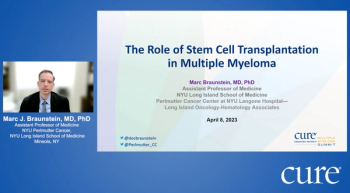
Watch Dr. Marc Braunstein, from NYU Langone Hospital, discuss the role of bone marrow transplant during the CURE Educated Patient Multiple Myeloma Summit.
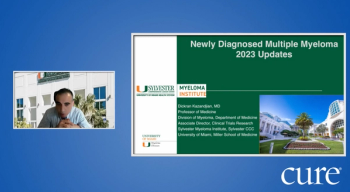
Watch Dr. Dickran Kazandjian, from Miami Health System, discuss updates in newly diagnosed disease during the CURE Educated Patient Multiple Myeloma Summit.

A patient with head and neck cancer highlights the importance of a strong support system throughout the time he was recovering from surgery.

One patient was able to access a therapy for follicular lymphoma before it was approved by the FDA, which allowed him to help future patients through his experience.

The inflammation associated with lung cancer and depression may impact survival, despite treatments like immunotherapy and targeted therapies.

After being given 2 years to live by her oncologist, a mother of two children is trying her best to protect her family — and herself — from thinking too negatively despite having rare gastrointestinal cancer.

If approved by the FDA, Keytruda plus chemotherapy could provide a frontline therapy for patients with locally advanced unresectable or metastatic gastric or gastroesophageal junction adenocarcinoma.

For some patients with non-small cell lung cancer, removing part of the lobe rather than the entire lobe still provides benefit, study results show.

Researchers conducting the VISTA-101 study will assess the safety and efficacy of KVA12123 alone and with Keytruda, in addition to determining the recommended dose of the therapy.

Some factors may increase the risk for anxiety and depression in older patients with metastatic cancer including distress related to physical symptoms, relationships, healthy lifestyle and communication with their health care team.

Patients with stage 3 colon cancer who reported physical activity after surgical resection may derive a survival benefit and may prolong disease recurrence.

A pharmaceutical company initiated a phase 1b study in patients with platinum-resistant, ARID1a-mutated ovarian carcinoma.
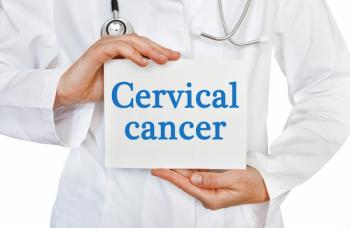
This analysis of the KEYNOTE-826 trial focused on health-related quality of life in patients with persistent, recurrent or metastatic cervical cancer.

Immunotherapy treatment with Opdivo before surgery improved recurrence-free survival and overall survival at five years in patients with non-small cell lung cancer.

Researchers determined that mortality rates did not differ in men with localized prostate cancer if they underwent active monitoring, prostatectomy or radiotherapy.

The FDA approved the combination for patients with locally advanced or metastatic urothelial carcinoma who are ineligible for treatment with cisplatin-based chemotherapy.

As caregivers become more integrated into the health care delivery process for patients with cancer, their own needs should still be focused on pertaining to mental and physical health.

Patients with cancer may decide to share their diagnosis with their employer but approaching it in a way that is most comfortable to the patient may make it a more effective conversation.